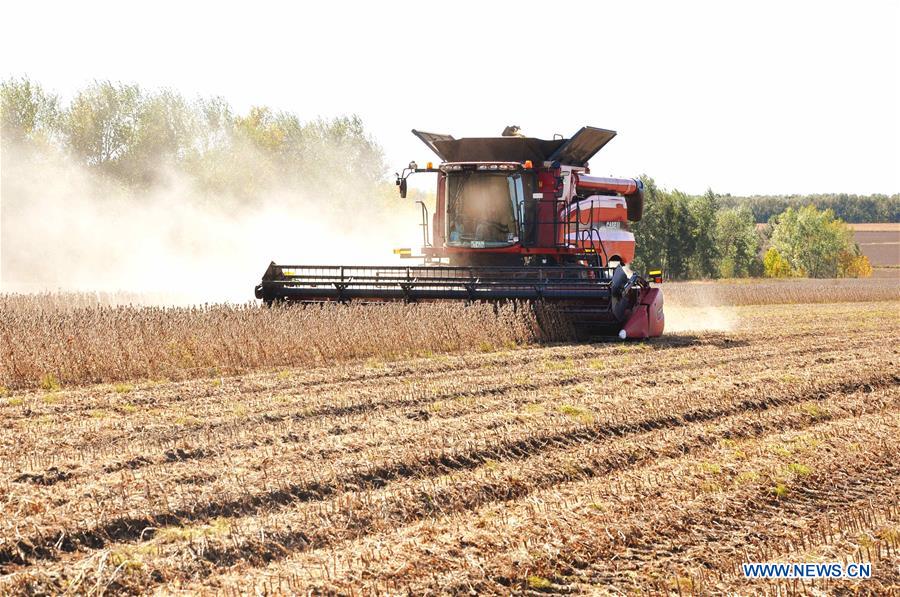China expands soybean plantation area to cut dependence on imports
 0 Comment(s)
0 Comment(s) Print
Print E-mail Xinhua, May 16, 2019
E-mail Xinhua, May 16, 2019

Major soybean growers in China are expanding to achieve fast growth in domestic supply of high-quality soybean produce this year while cutting the country's dependence on imports.
The seeding for soybeans is going on in north China's Heilongjiang and Jilin provinces, Inner Mongolia Autonomous Region, and the central province of Henan, with an estimated planting expansion rate of over 10 percent this year.
China's soybean imports declined for the first time in seven years, according to the China Agricultural Sector Development Report 2019 released on Monday. The import volume was 88.03 million tonnes last year, down by 7.9 percent year on year.
Soybean futures at the Chicago Board of Trade closed Monday at the lowest level in more than 10 years, as traders showed increasing concerns about the escalating trade friction between the United States and China.
China announced Monday that it would raise the rate of additional tariffs imposed on some of the imported U.S. products from June 1. This decision came after the U.S. move to increase tariffs on 200 billion dollars worth of Chinese goods from 10 percent to 25 percent as of May 10.
Farmers' enthusiasm
In Heilongjiang Province, which yields half of China's soybean output, farmer Fu Zhengwu is planting soybean seeds provided by the Northeast Institute of Geography and Agroecology, affiliated to the Chinese Academy of Sciences.
Fu said he planted 267 hectares of the soybean breed last year, which contains high-protein levels.
Li Yanhua, a researcher of the institute, said the new soybean breeds such as Dongsheng No. 7 and No. 17 were developed by the institute last year. They have become hotly sought after, as some farmers tasted the sweet harvest last year.
The provincial department of agriculture and rural affairs estimated that the soybean planting area would increase by over 10 percent this year, from last year's 3.6 million hectares. Large cooperatives manage many soybean plantation fields in the province for mechanic farming.
Neighboring Inner Mongolia has planned to add 133,333 hectares of soybean plantation area this year, bringing the total to 1.2 million hectares. With the popularity of drip irrigation, the average soybean yield in the arid region reached 4,366.5 kg per hectare in 2018, up from a record high of 3,765 kg per hectare set in 2005.
In eastern China's Shandong Province, the provincial academy of Agricultural Sciences has also been involved in breeding new soybean varieties with advantages of anti-water-logging and resistance to cotton bollworm, factors that deter farmers from cultivating soybeans.
"The new breed can ensure a stable yield of 3,000 kg per hectare, which has aroused farmers' interests in soybean production," said Yang Wujie, an official from the provincial department of agriculture and rural affairs.
In eastern China's Jiangsu Province, farmers will plant soybeans after harvesting wheat around the end of May.
Cai Weiquan, a rural cooperative manager in Huai'an City, said farmers have high expectations about the future value of soybeans in the market. The cooperative will satisfy the growing soybean demand this year.
Zhao Jinming, deputy head of the National Soybean Improvement Center, said Jiangsu has been a national pilot in interplanting soybean and wheat, promoting the technology of no-tillage mechanization of wheat stubble to improve farming efficiency.





